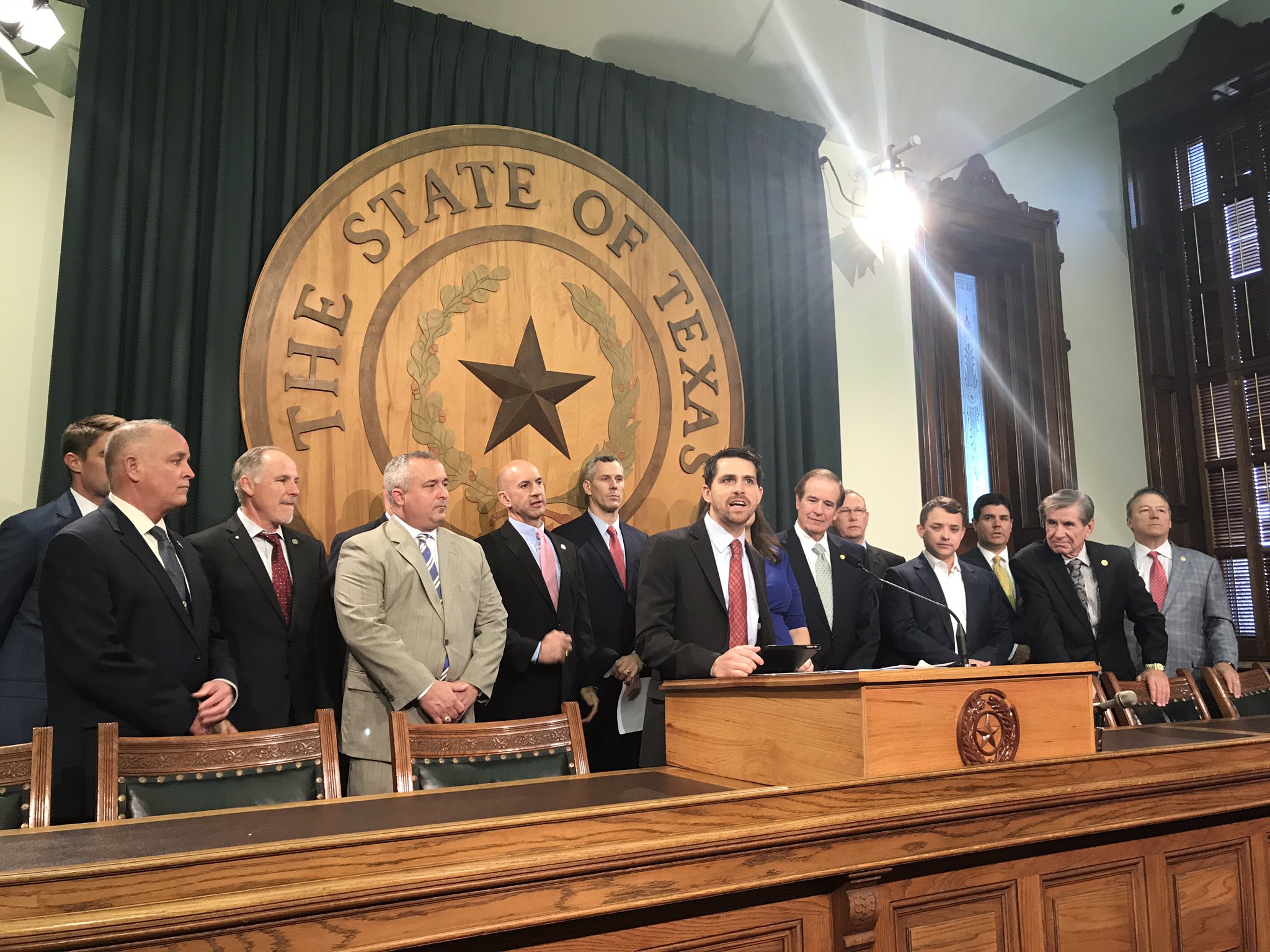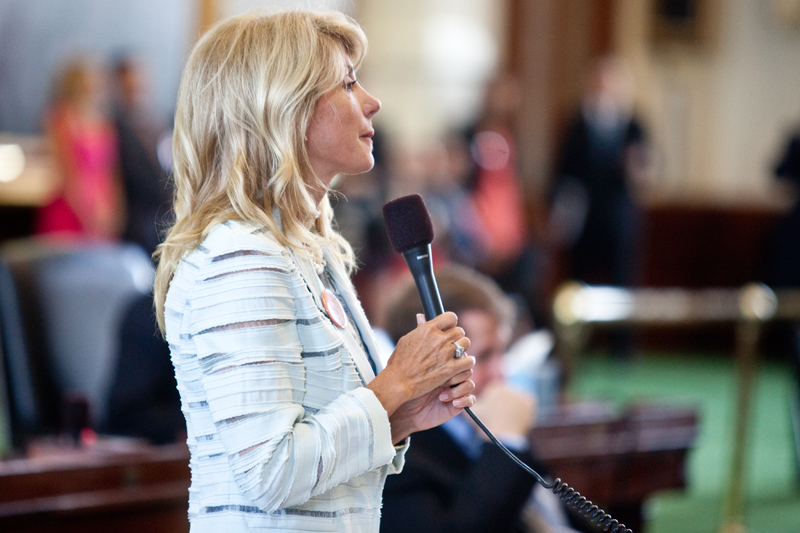
Red is the New Orange: Handmaids Bring More than Just Silence to the Abortion Fight
The grassroots group of reproductive justice activists have seized a terrifying political moment and created a defiant act of pop-cultural resistance.

A version of this story ran in the June 2017 issue.

In white bonnets and bright-red robes, they sit silently in protest as lawmakers usher in yet another bill that will make it harder for Texans to access abortion. Single-file, they shuffle through the halls of the Capitol, eyes on their feet. Their feigned deference is as powerful as it is unnerving.
They are the Texas Handmaids, a grassroots group of reproductive justice activists who have seized a terrifying political moment and created a defiant act of pop-cultural resistance, emulating the women of Margaret Atwood’s The Handmaid’s Tale, the dystopian classic about extremist right-wing government and forced birth. And they are but one iteration of a radical red-state reproductive justice movement that began in earnest in the summer of 2013, when Wendy Davis spent 13 hours literally standing up for abortion rights while thousands of orange-shirted Texans packed the halls of the Capitol. The movement has blossomed into a statewide network of abortion providers, funders, volunteers and activists. They can mobilize quickly, not just to support reproductive rights, but also to advocate for the intersecting issues of economic, immigration, racial and gender justice.
In the ensuing Supreme Court battle over the anti-abortion law that lawmakers eventually railroaded through as House Bill 2, Texans founded dedicated abortion funds for West Texas and the Rio Grande Valley. In subsequent legislative sessions, activists again dusted off their orange for protests but also donned hospital gowns to oppose draconian regulations on abortion access for Texas teens. On a more institutional level, the Trust. Respect. Access. coalition united a diverse group of lefty organizations dedicated to demanding legislation expanding reproductive rights, rather than just defensive measures against the worst incursions on personal freedom.
This Lege session, the Lilith Fund, which helps pay for abortion procedures for Central Texans, co-organized a covert banner drop in the Texas Senate when lawmakers passed a ban on private insurance coverage for abortion. Reproductive justice groups also joined protests against Texas Republicans’ anti-immigrant “sanctuary cities” legislation, Senate Bill 4, which could further intimidate undocumented Texans who already delay health services out of fear of being taken into custody. Farther afield, members of the North Texas abortion fund, the Texas Equal Access Fund, road-tripped across the Panhandle this spring organizing around increasing abortion access there — and even stopped to spray-paint a little reproductive freedom graffiti at Cadillac Ranch.
And you’ll see more of the Handmaids making appearances outside of Austin in the coming months, too. You might even get invited to a Handmaids house party to discuss the book or the new Hulu show based on it — complete with a gender- and race-critical discussion guide developed by a coalition of activists who first became acquainted during those tumultuous weeks at the Capitol in 2013.

It is amazing to look back at how this movement has sustained and expanded in the face of single-party rule by religious zealots. There has been nothing easy about standing up for reproductive rights in Texas since Davis’ filibuster. Activists worried about maintaining the spirit of the “unruly mob” as clinic after clinic closed. Morale hit a devastating low after Davis lost her 2014 gubernatorial bid to Greg Abbott.
But the resilience — and the resistance — paid off. So far in 2017, three abortion providers forced to shutter by HB 2 have reopened. Clinics in Dallas and Waco have relaunched abortion services, and the Austin location of Whole Woman’s Health, the abortion provider that took Texas to the Supreme Court and won, has begun providing care once again.
Progress is slow; setbacks are many. But this is what long-term organizing looks like, and with Donald Trump in the White House, we need to see the Texas reproductive justice movement’s creativity, persistence and grassroots values replicated nationwide. The Texas movement isn’t a cult of personality, though certainly it owes a great deal to Wendy Davis. It doesn’t demand allegiance to any party or politician. Political wins, while important, aren’t its sole marker of success — creating cultural change and building solidarity are just as crucial.
Moments of crisis create community, and Texas is in good hands with the Handmaids — and the hundreds of others who, thanks to a wildly exhausting summer four years ago, have become diverse and demanding voices of freedom against long, but not impossible, odds.
This column appears in the June 2017 issue of the Texas Observer. Read more from the issue or become a member now to see our reporting before it’s published online.


